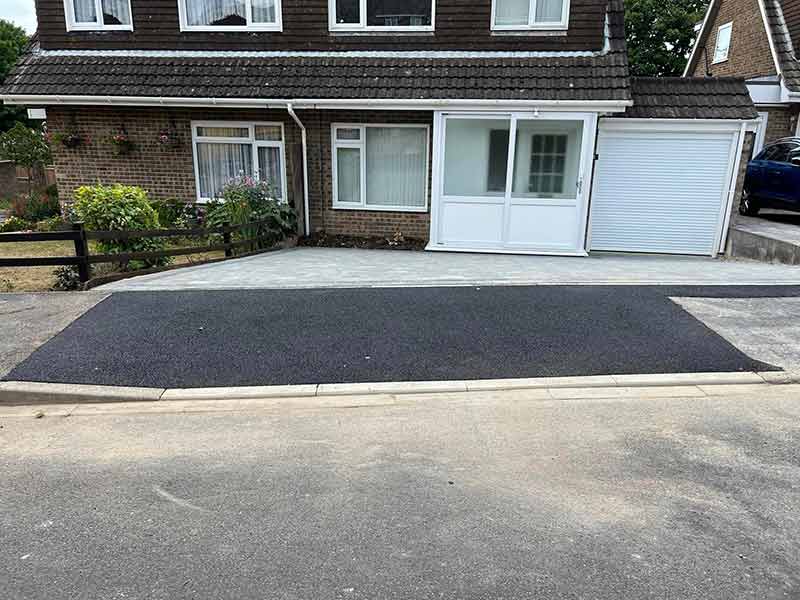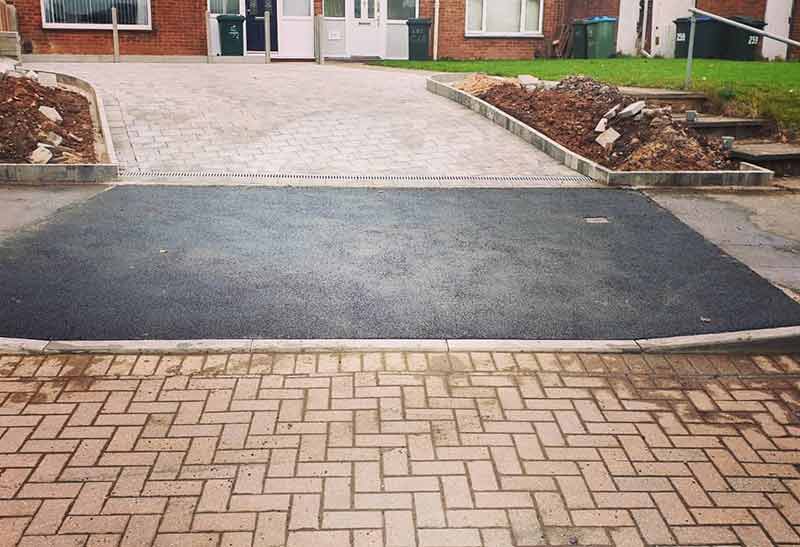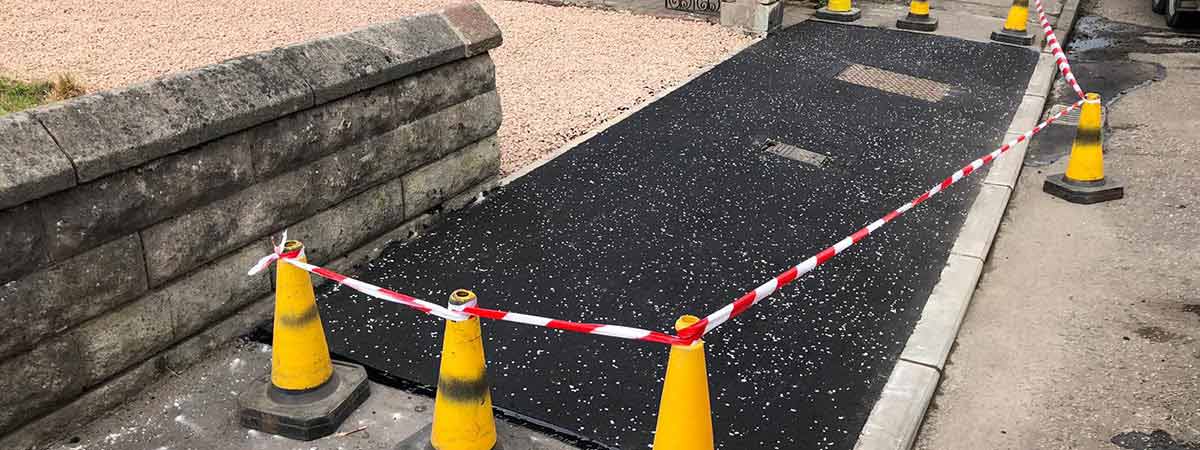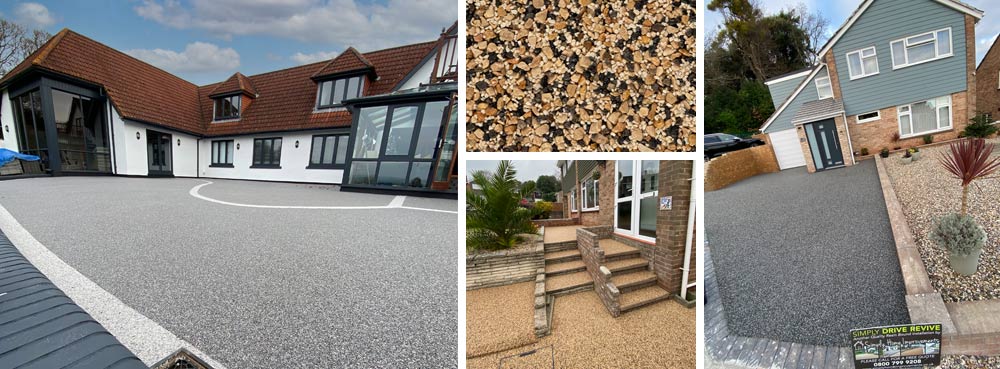This article will explore the legal implications of owning the pavement outside one’s house in the United Kingdom.
It is important to consider how property law and public rights interact when determining who owns a particular area, such as a pavement or sidewalk.
The analysis presented here will focus on relevant case studies and legislation from England and Wales while considering both private individuals’ interests and those of local authorities.
Through this examination, it will become evident which party holds ownership over these areas in different scenarios.
Who Owns The Pavement In The Uk?
In the UK, there is a long-standing tradition of public access to roadways and pathways. This means that certain areas are considered to be available for general use by members of the public, including pavement outside private houses.
It has been established in law through centuries of common law precedent that ‘Rights of Way’ exist where members of the public can travel on foot or with vehicles across any land owned by others without interference.
The landowner’s rights over their property are balanced against these ‘Roadway Rights’ ensuring that members of the public have free access to roads, paths and pavements throughout Britain. Indeed, it is legally accepted that if you own land in England or Wales then you do not necessarily own everything within its boundaries; such as a path or roadway passing through it which could remain open to the right kind of public access even though your title deeds may show otherwise.
For example, if someone owns a house but does not own the pavement outside their home then they will not be allowed to block off this area from public access unless they can prove legal ownership over it.
Thus, while some landowners may think they own parts of pavements outside their homes – such as those running along side gardens – this is normally only true when expressly stated so in previous conveyances or trusts between owners.
Transitioning into subsequent sections about whether landowners are responsible for maintenance should provide further clarity regarding who holds responsibility for upkeep and repair work relating to pavements around private properties in English and Welsh law.

Is The Landowner Responsible For Maintenance?
In the UK, landowners are typically responsible for maintaining a footpath on their property. This includes keeping it free from debris and other obstructions.
In most cases, they must also ensure that street cleaning is carried out regularly and comply with any parking restrictions imposed by local authorities.
The rights of a landowner in relation to the pavement outside their house will depend on whether they own or lease the property. If they own the property, then they hold legal responsibility for its maintenance, although there may be certain exceptions depending upon where the driveway is located.
If the homeowner leases the property instead, then this responsibility falls onto the landlord who owns it.
Overall, homeowners should familiarise themselves with applicable legislation regarding pavements and footpaths so as to ensure that all necessary steps have been taken to maintain them properly and legally. Doing so can help avoid potential disputes with neighbouring properties or public authorities if problems arise over ownership and maintenance issues.
What If I Need To Repair The Pavement?
- Repairing a pavement outside a private property in the UK requires permission from the local council, as well as adherence to certain regulations.
- Depending on the nature of the repair, costs vary and may include labour costs, material costs and any other associated costs.
- Depending on the local council, there may be regulations regarding the type of materials used, the type of repairs allowed, and the time frame for completion.
- In some cases, the local council may provide a subsidy to cover a portion of the repair costs, depending on the circumstances.
Repair Costs
In the UK, it is important to understand one’s rights when it comes to repairing a footpath located outside of their property.
The first step in determining such rights is understanding who possesses legal access to the footpath.
Depending on its location, responsibility for the repair of any damage may be shared by both local authorities and homeowners alike.
In some cases, road damage might also need to be addressed if the pavement has suffered from heavy usage or other forms of wear and tear.
When assessing who owns the right to repair a footpath, it is necessary to consider whether there are any restrictions that could prevent either party from taking action.
For instance, certain areas may require permits or licenses before carrying out repairs; these should be taken into account when considering which responsibilities lie with whom.
Furthermore, costs associated with repair work must also be considered; this can range from materials needed for patching up damaged sections of pavement as well as labour fees and other related expenses.
Ultimately it is essential for one to familiarise themselves with applicable laws regarding ownership and access rights prior to undertaking any repair works on their own or hiring professionals for assistance.
Those found violating regulations could face fines or even criminal charges depending on severity of infractions incurred upon inspection.
Permission Requirements
The discussion of permission requirements when repairing a footpath is paramount to understanding the rights and responsibilities that each party has in this situation.
To begin, it is important to note who holds ownership over the right-of-way: whether it belongs to the public or private domain. If there are restrictions placed upon accessing the pavement for repair purposes, then these must be taken into account; as failure to do so could lead to legal repercussions such as fines or criminal charges.
Different areas may require permits or licenses depending on its location, thus requiring all parties involved in repairs to adhere strictly to local regulations.
Furthermore, costs associated with any necessary repairs should also be considered before undertaking work; this includes materials needed for patching up damaged sections of pavement along with labour fees and other expenses related thereto.
Therefore, familiarising oneself with applicable laws beforehand can help ensure that all permission requirements have been met prior to commencing repairs.
Local Laws And Regulations
The issue of who owns the pavement outside a house in the UK is an important legal consideration, and one with potentially far-reaching implications. In reality, no single individual has complete ownership over any public right of way; rather, it is subject to various local laws and regulations which serve to protect both private property owners and those using the area for public access.
Understanding these laws can be difficult as they vary from region to region and may even depend on specific circumstances such as whether or not there is a pattern of regular use by members of the public.
When looking at who owns the pavement outside a house in the UK, it is necessary to consider several different elements: firstly, local councils often have authority over certain areas; secondly, liability issues come into play when discussing public access rights; and finally, general rules about private ownership must also be taken into account.
Local councils are responsible for ensuring that pavements are clear of debris and safe for public use while balancing this with concerns around public liability should an accident occur. The council may also provide support for individuals wishing to improve their own property adjacent to their home without creating potential hazards for pedestrians or passersby.
In terms of private ownership claims, homeowners generally cannot make exclusive claims over any part of a road or pavement deemed open for public access. In some cases however, where patterns of consistent use show that an area is more heavily used by people living nearby than passing strangers then special arrangements may be made between neighbouring houses regarding maintenance costs and other aspects related to owning the pavement outside one’s house.
It is therefore crucial that anyone seeking clarification on who holds responsibility in such matters understands all relevant legislation as well as what options are available under current law.
Frequently Asked Questions
Is There Liability Insurance For Damages Caused To The Pavement?
The Current Toipic is regarding the liability insurance for damages caused to a pavement.
Generally, maintenance and usage are subject to local laws that vary from region to region. However, many areas may require homeowners or property owners to maintain any pavements outside their residences in order to avoid legal liabilities.
In addition, certain forms of liability coverage may be available if damage occurs as a result of negligence or improper use of the pavement.
Therefore, it is important for individuals to understand the local regulations when utilizing pavements near their residence and consider obtaining appropriate liability coverage for such potential risks.
Can I Make Changes To The Pavement Without The Permission Of The Local Authority?
Making changes to the pavement outside of one’s own home without obtaining permission from the local authority is an act that could have serious legal implications.
It may require permits, and necessary maintenance costs could be exorbitant if not approved by a governing body beforehand.
This is why seeking advice from a lawyer or researching applicable ordinances should take precedence before making any alterations to public land.
What Type Of Materials Are Used To Repair The Pavement?
Pavement maintenance is often necessary to keep sidewalks and roads safe for pedestrians, cyclists, and motorists.
In many cases, pavement repair can be a DIY project; however, it is important to consider the legal implications of such an endeavor. Depending on local laws, any changes made to public or private property may require permission from the local authority in order to avoid potential penalties.
Materials used for pavement repair vary depending on the scope of the job. Common materials include asphalt patching compounds, cold mix asphalt, crack sealants, surface sealers, tarmacadam emulsion binders and bitumen macadams.
How Much Does It Cost To Repair The Pavement?
The cost of maintaining pavement can be likened to a game of chess. It requires careful consideration and planning, especially if hiring contractors or taking on DIY repairs.
Before making any decisions, it is important to consider the costs associated with maintaining the pavement. This includes researching potential contractors and their rates as well as evaluating whether DIY repairs are feasible based on the level of skill required for such tasks and potential materials needed.
All in all, depending on the complexity of repair needs and type of materials used, repairing pavement could range anywhere from hundreds to thousands of dollars.

Are There Any Restrictions On The Use Of The Pavement?
The use of pavement in the UK is subject to a variety of restrictions, which are designed to protect pedestrian rights and public access.
These regulations apply to both private and publicly owned pavements, including street art or other forms of expression on the surface.
Generally speaking, no individual can claim exclusive ownership over any part of the pavement outside their house without explicit permission from the local council or other governing body.
Conclusion
In conclusion, it is important to be aware of the legal ramifications associated with owning a pavement outside one’s house in the UK.
Ownership entails responsibility for any damage caused and potential liability if another person is injured as a result of the pavement’s condition.
Furthermore, permission from local authorities may be required before making changes to the pavement, depending on its location and size.
Additionally, repair costs can vary greatly according to the type of materials used and their availability.
Finally, there are often restrictions on how or when certain sections of pavement can be used due to safety concerns or other reasons.
Overall, owners need to consider all relevant factors when assessing whether they should own a piece of pavement in front of their home in the UK.
Call us to get a price quote on a drop-kerb. Contact us today on 07595 510190 to receive a free quote or visit our website.



